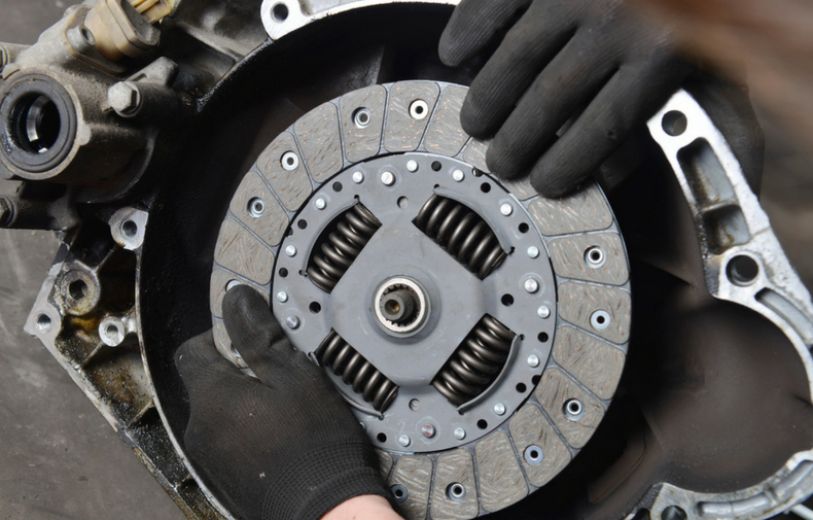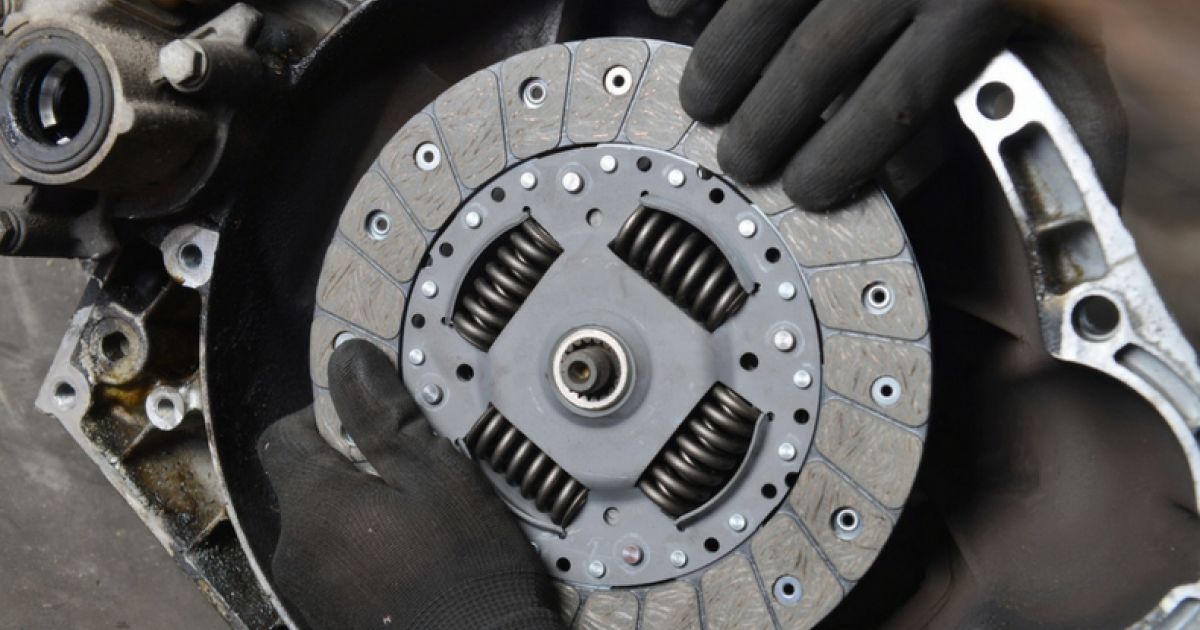As an Amazon Associate, I earn from qualifying purchases at no extra cost to you.
Why Does a Manual Transmission Make Noise That Stops When the Clutch is Pressed?
A manual transmission makes noise when the clutch is not pressed due to worn or damaged components such as the release bearing, input shaft bearing, or pilot bearing. When these parts make contact, noise is produced.
The noise stops when the clutch is pressed because the contact between these components is temporarily relieved, thus reducing the noise. This issue can be resolved by replacing the faulty components. If left unaddressed, the noise can lead to more serious transmission problems and should be checked by a professional mechanic.
When driving a vehicle with a manual transmission, it’s not uncommon to hear various noises, such as grinding, whining, or rattling. However, if you notice a noise that ceases when you press the clutch, it might be a sign of an underlying issue that requires attention. This article will delve into the reasons behind the noise, the potential consequences of ignoring it, and the necessary steps to resolve the problem. Understanding these aspects can help ensure the smooth operation and longevity of your vehicle’s manual transmission.

Credit: www.rac.co.uk
Transmission Noise: Causes
When a manual transmission makes noise that stops when the clutch is pressed, there could be various reasons behind it. Understanding the causes of transmission noise can help in identifying and resolving the issue effectively.
Worn Gear Syncros
Gear syncros in a manual transmission help in smoothly shifting between gears. Worn gear syncros can result in grinding or clunking noises when shifting, which stop when the clutch is pressed.
Low Transmission Fluid Levels
Low transmission fluid levels can lead to increased friction between components, causing unusual noises in the transmission. Checking and maintaining adequate fluid levels is essential to prevent such noises.
Misaligned Clutch Release Bearing
A misaligned clutch release bearing can also contribute to noise in the transmission. When the clutch is pressed, the bearing aligns properly, momentarily reducing the noise.
Transmission Noise: Symptoms
When it comes to diagnosing transmission issues, unusual noises can be a telltale sign that something isn't quite right. Paying attention to specific noises and their accompanying symptoms can help identify potential problems. Unusual grinding or whining noises and noise patterns that change when the clutch is pressed can indicate issues with the transmission system.
Unusual Grinding Or Whining Noises
Unusual grinding or whining noises from the transmission while driving can be a sign of worn-out gears, damaged bearings, or a faulty clutch. These noises may indicate that the transmission components are not working as they should and may require inspection and potential repairs by a qualified mechanic. Ignoring these noises can lead to further damage to the transmission system, resulting in costly repairs.
Noise Stops When Clutch Is Pressed
When the noise stops when the clutch is pressed, it could be an indication of a worn-out clutch release bearing. This component is responsible for disengaging the clutch when it is pressed, and a faulty release bearing can cause a unique noise that ceases when the clutch pedal is pressed. Addressing this issue promptly can prevent further damage to the clutch and transmission system, saving you from potential expensive repairs down the line.
Impact On Vehicle’s Performance
Manual transmission noise when the clutch is not engaged is often caused by particular components within the gearbox. This noise can impact the vehicle’s performance by affecting smooth gear shifts and overall driving experience. Engaging the clutch temporarily stops the noise, indicating a direct link to transmission operation.
Impact on Vehicle’s PerformanceWhen a manual transmission makes noise that stops when the clutch is pressed, it can significantly impact the vehicle’s performance. Here are some key factors to consider.Limited power transmissionA noisy manual transmission that quietens when the clutch is engaged can hinder power transmission. Inadequate power delivery due to the noise can lead to a sluggish driving experience and reduced acceleration. This can affect the overall performance of the vehicle, limiting its ability to efficiently respond to driving demands.Difficulty in shifting gearsThe noise in a manual transmission can also lead to difficulty in shifting gears. This can result in a jerky or unsmooth driving experience as it becomes challenging to engage the transmission effectively. Drivers may find it harder to achieve the desired speed or maintain a consistent driving rhythm due to these disruptions.In conclusion, the impact of a noisy manual transmission that stops when the clutch is pressed can have adverse effects on a vehicle’s performance, affecting power transmission and gear shifting. Addressing these issues promptly is crucial to maintain an optimal driving experience.Credit: www.quora.com
Preventing Transmission Noise
When a manual transmission makes noise, it often stops when the clutch is pressed. This occurs because the clutch disengages the transmission from the engine, preventing the noise from being transmitted. This action effectively interrupts the noise, providing a temporary respite from the sound.
Regular Transmission Maintenance
Performing regular maintenance can keep transmission noise at bay.
- Check for any leaks and address them promptly.
- Replace worn-out clutch components.
- Ensure proper fluid levels and quality.
Proper Clutch Usage
Using the clutch correctly can prevent transmission noise when shifting gears.
- Avoid riding the clutch unnecessarily.
- Engage the clutch fully when changing gears.
- Shift smoothly and avoid abrupt gear changes.
Common Diy Solutions
When it comes to a manual transmission making noise that stops when the clutch is pressed, there are a few common DIY solutions to consider. These solutions can help address the underlying issues causing the noise and restore a quieter and smoother driving experience.
Replacing Worn Gear Syncros
If you notice that your manual transmission makes noise during gear shifting, it might be due to worn gear syncros. Gear syncros are components that help synchronize the rotating speeds of the gears, allowing for smooth shifting. Over time, these syncros can wear out, leading to grinding or whining noises. To address this issue, you can replace the worn gear syncros. This involves removing the transmission, disassembling it, and carefully replacing the worn syncros with new ones. By doing so, you can eliminate the noise and enjoy smoother gear shifts.
Checking And Refilling Transmission Fluid
In some cases, the noise in a manual transmission can be caused by low or degraded transmission fluid. Insufficient or deteriorated fluid can lead to increased friction and unnecessary wear on the transmission components, resulting in noise. To address this, you should regularly check the transmission fluid level and quality. Locate the transmission fluid dipstick, usually found near the engine bay, and check the fluid level. If it’s low, you can add more fluid to the recommended level. Additionally, if the fluid appears dark or smells burnt, it might be time to change it. Make sure to consult your vehicle’s owner manual for the correct type and amount of transmission fluid. By maintaining proper fluid levels and using high-quality fluid, you can reduce noise and extend the life of your transmission.

Credit: www.rac.co.uk
When To Seek Professional Help
Knowing when to seek professional help for transmission noise in your manual vehicle is essential to prevent further damage and ensure optimal performance. While some transmission noises may be normal, others can be signs of underlying issues that require immediate attention. In this article, we will explore two key indicators that suggest it is time to consult a professional: persistent transmission noise and an inability to engage gears smoothly.
Persistent Transmission Noise
One telltale sign that you should seek professional help is if you are experiencing persistent transmission noise. While it is common for a manual transmission to produce some noise during operation, such as a slight whir or hum, any unusual or excessive noise that persists can be an indication of a problem.
- Listen for grinding, whining, or knocking sounds that persist even when the clutch is not engaged.
- If you notice a constant transmission noise that gets louder or changes pitch as you accelerate or decelerate, it is crucial to have it inspected by a professional.
Inability To Engage Gears Smoothly
Another red flag that necessitates seeking professional assistance is an inability to engage gears smoothly. A properly functioning manual transmission should allow you to shift gears seamlessly, without any resistance or difficulty. If you encounter any of the following issues, it is highly recommended to consult a transmission specialist:
- If you experience a grinding or crunching sensation when shifting gears, especially when moving from neutral to first or when shifting into reverse, it may indicate a problem with the clutch or synchronizer.
- Difficulty shifting into any gear, including gears slipping or popping out unexpectedly, can be signs of internal transmission problems that require professional attention.
- Pay attention to any resistance or stiffness when pushing the clutch pedal, as it can indicate a problem with the clutch system or the hydraulic components.
Conclusion
The noise from a manual transmission when the clutch is pressed can be a common issue. Understanding the reasons behind it can help in addressing the problem effectively. Proper maintenance and timely repairs can ensure a smooth and efficient driving experience.
Be attentive to your vehicle’s signals to prevent any major issues.


